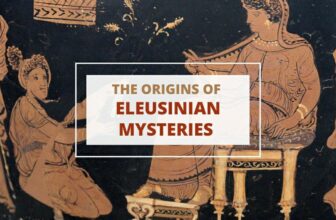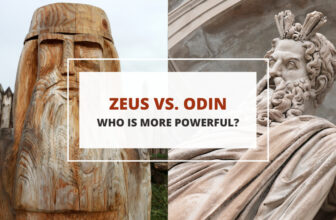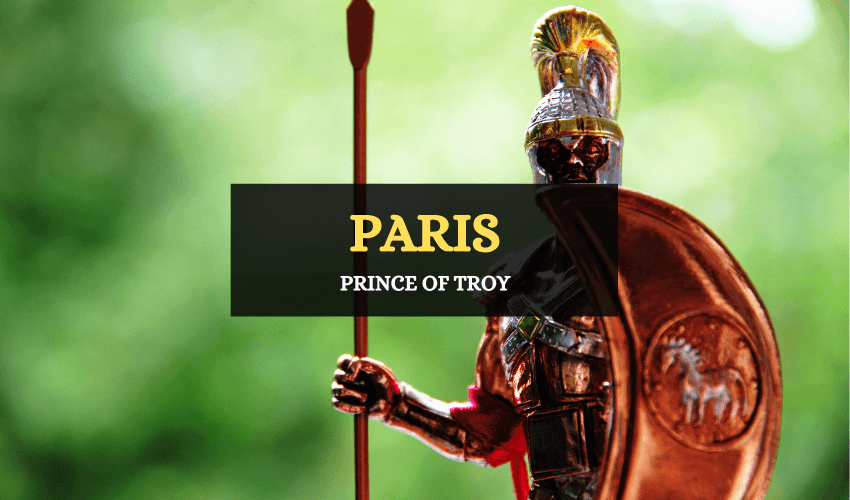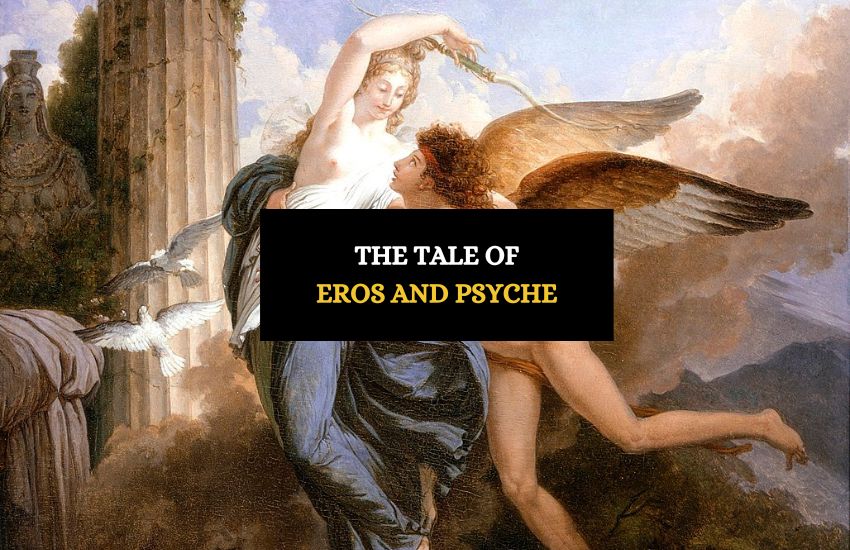
Table of Contents
The myth of Eros and Psyche is one of the most captivating stories from ancient Greek mythology. It tells the tale of a mortal woman named Psyche, who falls in love with the god of love himself, Eros. Their story is full of trials, tribulations, and challenges that ultimately lead to a powerful lesson about the nature of love and the human condition.
Despite being thousands of years old, the myth of Eros and Psyche still resonates with us today, as it speaks to universal themes of love, trust, and self-discovery. In this article, we’ll dive into the details of this fascinating myth and explore its enduring relevance in our modern lives.
The Curse of Psyche
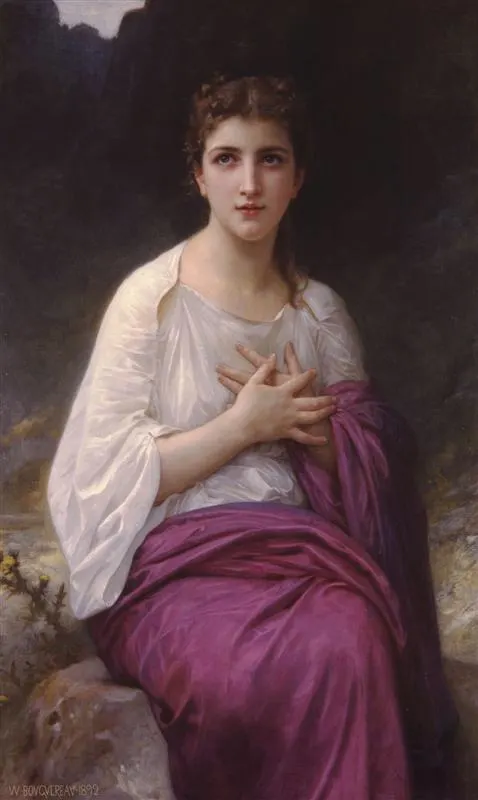
Psyche was a mortal woman in Greek mythology. She was so stunning that people started to worship her instead of Aphrodite, the goddess of love and beauty. Enraged by this, Aphrodite sent her son Eros, the god of love, to curse Psyche with a fate worse than death: to fall in love with a monster.
The Mysterious Lover and the Jealous Sisters
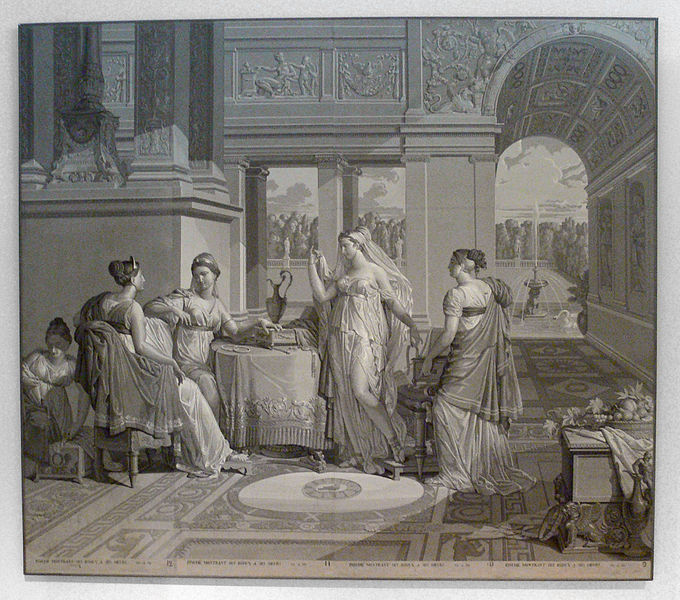
As Psyche wandered in the woods, she was suddenly swept off her feet by a mysterious lover who she couldn’t see. She could feel his touch, hear his voice, and sense his love, but she never saw his face. Night after night, they would meet in secret, and she would fall deeper in love with him.
Psyche’s sisters became jealous of her happiness and convinced her that her lover must be a monster. They urged her to kill him while he slept and warned her that he would kill her if she didn’t act first. Psyche, torn between love and fear, decided to take action and look upon her lover’s face.
The Betrayal
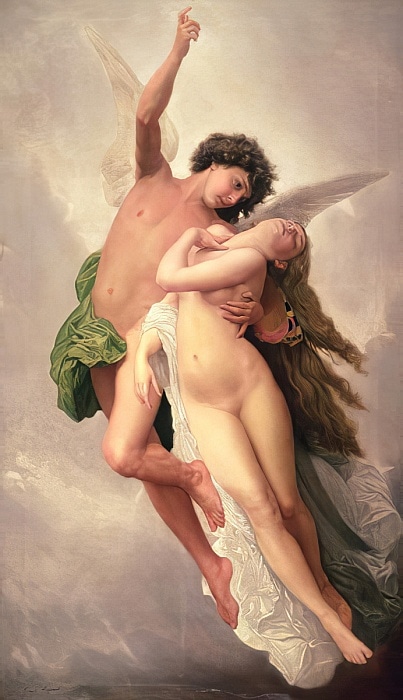
Psyche crept up to her lover while he slept and was shocked to see that he was the most beautiful creature she had ever seen. To her surprise, she accidentally pricked him with an arrow, and he woke up and flew away. Psyche, heartbroken and alone, searched the world for him, but she could not find him.
Determined to win back her lover, Psyche sought the help of Aphrodite, who demanded that she complete a series of impossible tasks. She was asked to sort a mountain of mixed grains, gather golden wool from man-eating sheep, and collect water from a dangerous river. Each time, she received help from unlikely sources, including ants, a reed, and an eagle.
The Final Test
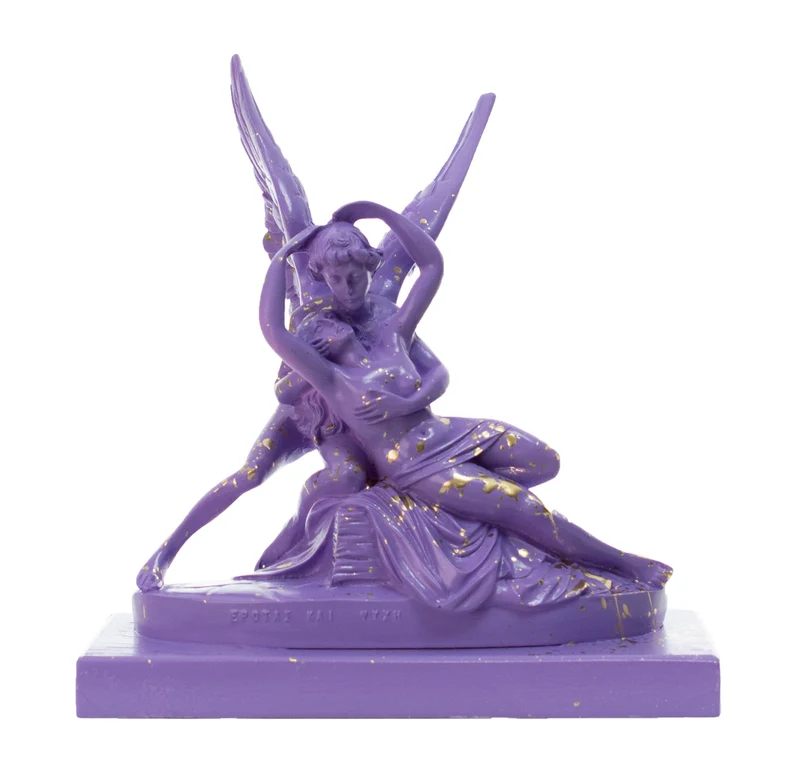
Aphrodite’s final task for Psyche was to descend into the underworld and retrieve a box of beauty cream from Persephone, the queen of the dead. Psyche succeeded in the task but couldn’t resist the temptation to try some of the beauty cream herself. She fell into a deep sleep and was left for dead.
Eros, who had been searching for Psyche all along, found her and revived her with a kiss. He forgave her for her mistakes and took her to Mount Olympus, where they were married. Psyche became immortal and gave birth to a daughter named Voluptas, the goddess of pleasure.
Alternate Versions of the Myth
There are several versions of the myth of Eros and Psyche, each with its own unique twists and turns that add to the intrigue of this classic love story.
1. The Princess Psyche
One such alternate version can be found in the novel “The Golden Ass” by Apuleius. In this version, Psyche is not a mortal woman but instead a princess who has been transformed into a donkey by the goddess Venus. Eros, who is depicted as a mischievous young boy, becomes enamored with Psyche the donkey and takes her to his palace to be his pet. However, as time passes, Eros falls deeply in love with Psyche and transforms her back into a human so that they can be together.
2. Eros Falls for a Flawed Psyche
Another version of the myth can be found in the “Metamorphoses” by Ovid. In this version, Psyche is again a mortal woman, but she is not as beautiful as the original myth portrays her. Instead, she is described as having a face and body that are less than perfect.
Eros, who is portrayed as a powerful and commanding figure, falls in love with her despite her flaws and takes her to his palace to be his wife. However, he forbids her from looking at him, leading to a series of trials and tribulations that test their love for each other.
3. Eros is Mortal
A third version of the myth can be found in the “Lives of the Eminent Philosophers” by Diogenes Laertius. In this version, Eros is not a god but instead a mortal man who falls in love with Psyche, a woman of great beauty and intelligence.
Together, they overcome various obstacles and challenges to be together, including the disapproval of Psyche’s family and the interference of other gods and goddesses.
The Moral of the Story
The myth of Eros and Psyche is one of the most enchanting love stories in Greek mythology, and it has a valuable moral lesson that’s as relevant today as it was back in ancient times. The story teaches us that love is not just about physical attraction, but it’s also about trust, patience, and perseverance.
In the story, Psyche is a beautiful woman who is admired by everyone except for the goddess Aphrodite, who is jealous of her beauty. Aphrodite sends her son Eros to make Psyche fall in love with someone ugly, but instead, Eros falls in love with Psyche himself.
Eros and Psyche’s love is put to the test when they are separated and face a series of challenges that threaten to tear them apart. However, they remain faithful to each other and overcome every obstacle in their path, proving that true love is worth fighting for.
The moral of the story is that love is not just about physical attraction or superficial beauty. It’s about finding someone who accepts you for who you are, flaws and all, and who is willing to stand by your side through thick and thin. True love requires trust, patience, and perseverance, and it’s worth fighting for, even when the odds seem to be against you.
The Legacy of the Myth
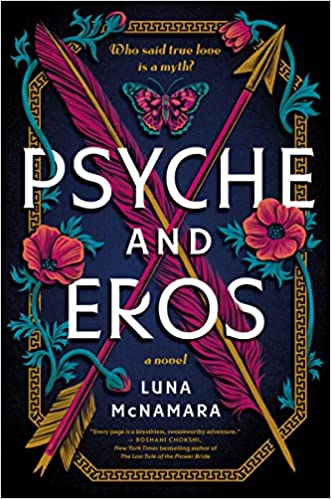
The legacy of Eros and Psyche has endured for centuries, inspiring countless works of art, literature, and music. The story has been retold and reinterpreted in countless ways, from classical sculptures to modern-day films.
The tale of the two lovers has become a symbol of true love and the power of perseverance, reminding us that love is not just about physical attraction but also about trust, patience, and dedication.
The story’s timeless themes continue to resonate with people of all ages and backgrounds, serving as a reminder that the pursuit of true love is a journey worth taking, no matter what obstacles may come your way.
Wrapping Up
From its origins in ancient Greece to its modern-day interpretations, the tale of Eros and Psyche has served as a reminder that true love is worth fighting for and that it requires trust, patience, and perseverance.
The story’s enduring legacy is a testament to the power of love and the human spirit, inspiring us to look beyond the surface and to seek the beauty and goodness within ourselves and others.



